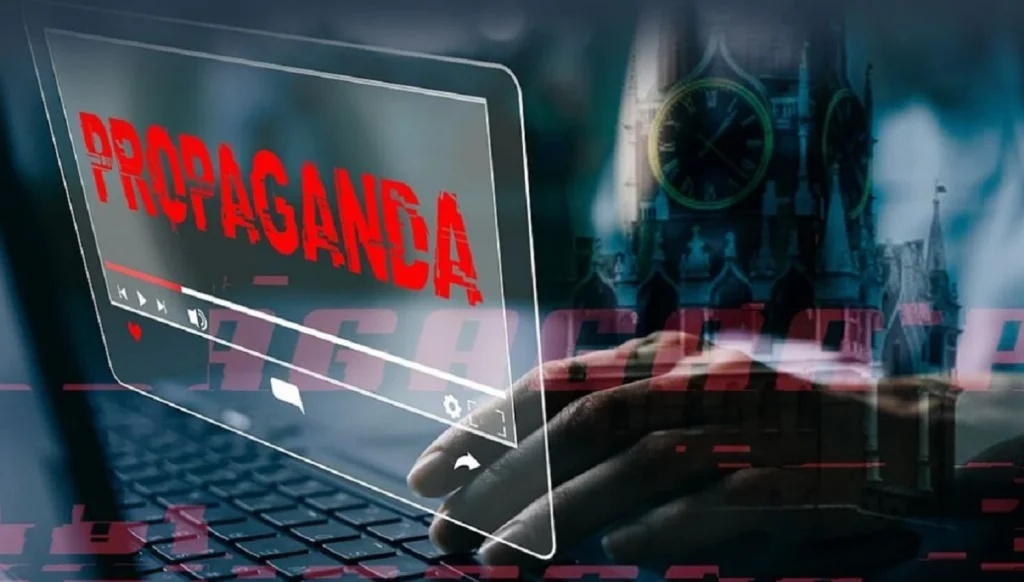Listen to the article
Russian Special Services Recruiting Vulnerable Groups Using ISIS-Like Tactics, Officials Warn
Russian intelligence agencies are employing propaganda techniques similar to those used by ISIS to recruit marginalized individuals across Europe for subversive activities, according to a new report from Ukraine’s Center for Countering Disinformation (CCD).
The CCD, which operates under Ukraine’s National Security and Defense Council, reveals that the Kremlin is specifically targeting Russian-speaking populations with ideologically appealing messages rooted in religious or nationalistic themes. This approach mirrors tactics used by the Islamic State during its peak recruitment period between 2013 and 2019.
“Russian propaganda fuels the polarization of European societies, inciting dissatisfaction with the internal policies of individual countries and the EU as a whole,” the CCD statement explained. “Subsequently, such individuals are involved in ‘one-time’ subversive tasks: intelligence gathering, arson, transmitting information about military and critical facilities, and other activities.”
Security officials believe Russia is deliberately creating a network of “one-time agents” – individuals who can be recruited cheaply to carry out specific destabilizing operations from within European Union territory. These operations aim to undermine public trust in national governments and create social instability across the continent.
The recruitment strategy specifically targets individuals who combine financial vulnerability with ideological susceptibility, making them particularly receptive to Russian messaging. By exploiting economic hardship alongside existing sympathies for Russian nationalist narratives, these intelligence operations have found fertile ground in certain marginalized communities.
European security experts have noted growing concern about these recruitment efforts, particularly as Russia continues to wage its war against Ukraine. The tactics represent an evolution in Russia’s hybrid warfare approach, blending traditional espionage with modern social media manipulation and targeted propaganda.
Recent investigations have also revealed that messaging platforms like Telegram serve as key recruitment channels. The encrypted nature of these communications makes them difficult for security services to monitor, creating additional challenges for counterintelligence operations.
Intelligence analysts suggest these recruitment efforts form part of Russia’s broader strategy to fracture Western unity regarding support for Ukraine. By creating internal discord within EU member states, the Kremlin hopes to weaken resolve for continued sanctions and military aid.
The CCD further warns that Russian disinformation efforts are expected to intensify in the coming weeks, with a particular focus on discrediting EU and US sanctions. Their intelligence indicates that Russian propaganda channels will push narratives about the supposed ineffectiveness of Western economic measures while simultaneously issuing veiled nuclear threats.
“We anticipate a coordinated messaging campaign emphasizing claims about Russia’s military superiority and the futility of Western support for Ukraine,” a CCD spokesperson noted. “These narratives aim to create war fatigue among Western populations and drive wedges between allied nations.”
European security agencies have responded by increasing cooperation on counter-disinformation efforts and enhancing monitoring of potential recruitment channels. Several countries have also launched awareness campaigns to help vulnerable communities recognize and resist such manipulation attempts.
The revelations come amid growing recognition that information warfare represents a critical front in Russia’s broader geopolitical strategy. By weaponizing social divisions and exploiting economic vulnerability, Moscow has developed methods to project influence far beyond its borders without direct military confrontation.
Security officials emphasize that countering these efforts requires not just intelligence work but also addressing underlying social vulnerabilities that make certain populations susceptible to external manipulation.
Fact Checker
Verify the accuracy of this article using The Disinformation Commission analysis and real-time sources.




7 Comments
This report underscores the need for robust cybersecurity, counterintelligence, and public education efforts to combat Russia’s hybrid warfare tactics. Allowing these divide-and-conquer strategies to succeed would be a grave threat to European stability and democracy.
This news highlights the evolving nature of modern warfare, where information warfare and the exploitation of societal fissures are becoming as important as traditional military might. The EU and its member states will need to adapt accordingly.
This is a concerning report on Russia’s hybrid warfare tactics targeting vulnerable groups in Europe. The use of ISIS-like propaganda techniques to sow social divisions is a worrying trend that requires vigilance and a robust response from European authorities.
While the details are concerning, I’m not surprised to see Russia resorting to such underhanded tactics. Their playbook of sowing discord and destabilizing adversaries is well-documented. The key will be for Europe to stay vigilant and united in its response.
Absolutely. Countering Russian disinformation and subversion will require a coordinated, multi-faceted approach across the EU. Sharing intelligence, strengthening civil society, and inoculating the public against manipulation will all be crucial.
It’s alarming to see Russia employing such insidious tactics to undermine European stability. Recruiting ‘one-time agents’ to gather intelligence and carry out subversive activities is a clear threat that needs to be addressed swiftly and decisively.
Agreed. Europe must remain united and resilient in the face of these hybrid warfare efforts. Effective counterintelligence and public awareness campaigns will be crucial to exposing and defeating these tactics.